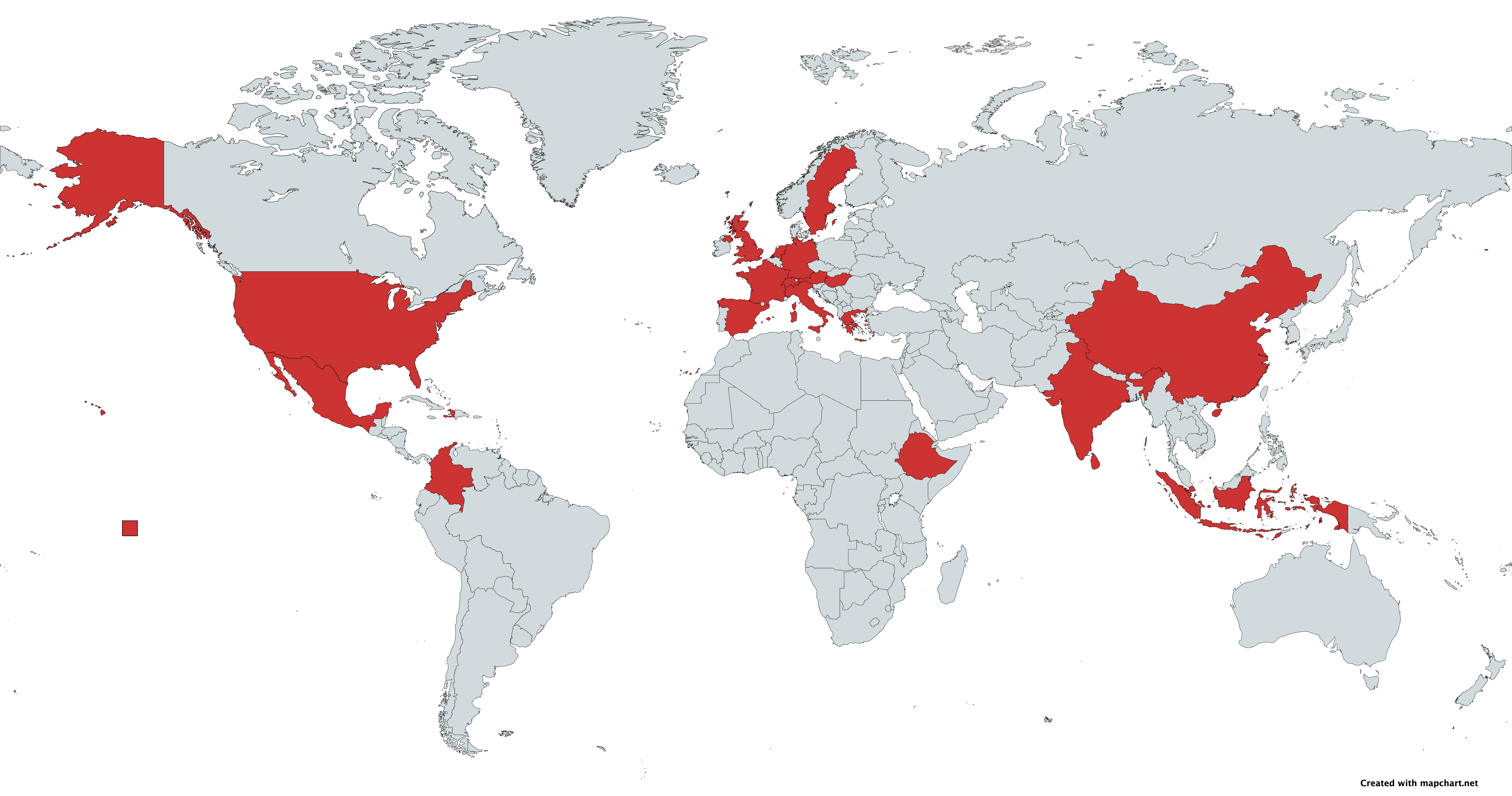Amplify your ideas.
Publish your work online with one of the world’s oldest and most widely-read publications in international law.HILJ website views since August 2023
Contributions published in the 2023-24 cycle
Distinct nationalities of HILJ website visitors since August 2023
Countries represented by authors published in the 2023-24 cycle
Submissions
HILJ Online: Perspectives publishes short-form academic scholarship on all areas of international law. Innovating Trade is a special online collaboration between the Harvard International Law Journal and the Georgetown Journal of International Law, focused on short-form scholarship in the realms of trade, technology, and climate initiatives under the scope of international law. For more information and submission instructions for each of these two online scholarship platforms, please click the appropriate tab below.
We are not accepting Perspectives submissions until September 2025!
Instructions for Perspectives Submissions
HILJ Online: Perspectives publishes concise commentary and analysis of issues in international law. Perspectives posts span a broad range of topics. Some contributions analyze recent significant developments in international law such as decisions of international tribunals or treaty processes. Others apply international law to pressing global problems. Others still offer new ways of thinking about long-established concepts in the field. As long as the contribution is related to international law, we have no fixed subject matter criteria. Rather, we are looking for submissions that offer a novel contribution to a topic, are well-researched, and are written with clarity and precision.
Perspectives contributions are typically between 1,000 and 2,500 words. They must be written in English. Citations are required and should be implemented through in-text hyperlinks as much as possible. A good example of the formatting style for Perspectives contributions is available here. We welcome submissions from legal scholars, practitioners, and law students.
Submissions Process
Please submit a completed article in Microsoft Word format along with each author’s CV to iljonline@mail.law.harvard.edu. Please include the author’s last name and the word “Perspectives Submission” as both the subject line of the email and the title of the Word Document in the following format: “Last Name_Perspectives Submission.” For example, a submission from John Doe should have the subject line “Doe_Perspectives Submission.” Submissions written jointly by more than one author are welcome. In this case, the title used for the Word Document and email subject line should contain each of the author’s last names. For example, a submission from John Doe and Jill Goodman should be titled “Doe_Goodman_Perspectives Submission.”
We make decisions on a rolling basis. Our article selection process entails review by HILJ’s Online Staff, which is comprised of J.D. and LL.M. candidates at Harvard Law School. Submissions may also be reviewed by our faculty advisors and/or scholars in our peer network. This process typically takes at least a few weeks. We endeavour to respond to authors within one month of receiving a submission in months when Harvard Law School is in session (September to April). We do not confirm receipt of submissions, but rest assured that if you have followed the instructions on this page we are in receipt of your submission and it is under review. We are unable to provide feedback for articles that are not selected.
Once an article has been selected, the Lead Online Executive Editor will contact the author with further information on the editing and publication process.
We occasionally consider longer articles, although we review and publish them on a slower timeline. A good recent example of a longer submission is available here.
Please contact iljonline@mail.law.harvard.edu with questions or to request an expedited review.
Countries represented by authors published in the 2023-24 HILJ Online submissions cycle
*Based on place(s) of post-secondary education and primary place of residence

